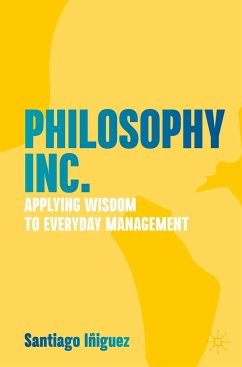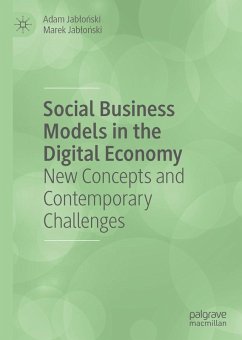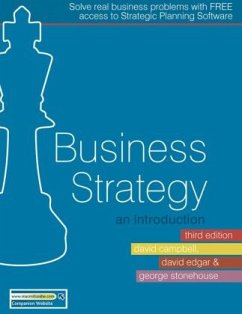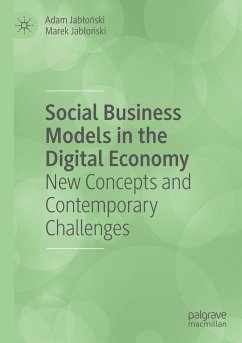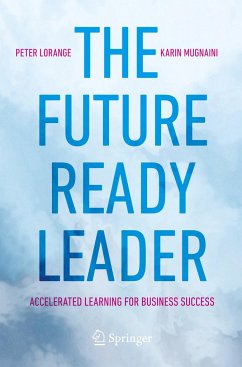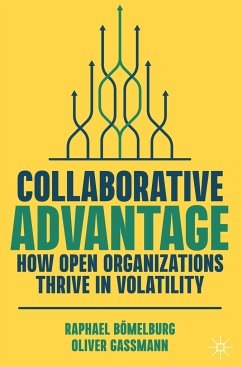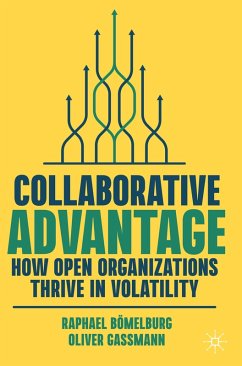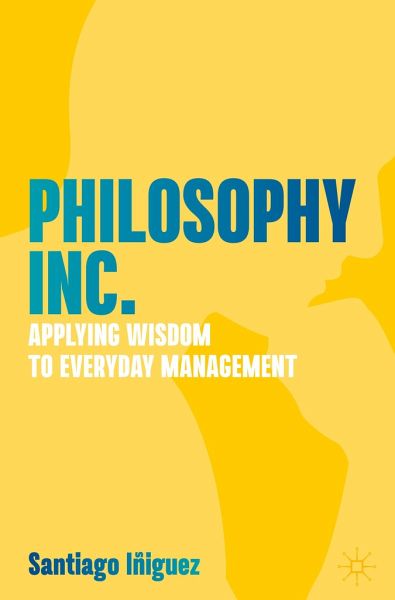
Philosophy Inc.
Applying Wisdom to Everyday Management
Versandkostenfrei!
Versandfertig in 6-10 Tagen
29,99 €
inkl. MwSt.
Weitere Ausgaben:

PAYBACK Punkte
15 °P sammeln!
While most managers are primarily concerned with being able to make decisions quickly, manage meetings efficiently and drive innovation, there is often little time for reflection in a business world where opinions must be formed and decisions taken on the hoof. It often seems counterintuitive to stop the clock and take time to think things through. Philosophy, on the other hand, addresses the basic questions of our existence, our identity, our role in the world and the models for living that might inspire our actions. By understanding philosophy, it becomes more possible to provide meaning to ...
While most managers are primarily concerned with being able to make decisions quickly, manage meetings efficiently and drive innovation, there is often little time for reflection in a business world where opinions must be formed and decisions taken on the hoof. It often seems counterintuitive to stop the clock and take time to think things through. Philosophy, on the other hand, addresses the basic questions of our existence, our identity, our role in the world and the models for living that might inspire our actions. By understanding philosophy, it becomes more possible to provide meaning to many of our management practices and to business at large, while enhancing self-satisfaction and happiness at work.
This latest book from Professor Santiago Iniguez presents a collection of management ideas inspired by renowned philosophers. It provides a framework, as well of a series of business situations, for analyzing decisions from the perspective of values and principles. With insights on topics such as, how to gain respect at work, how to cultivate an optimistic outlook and how to shrug off failure, it offers timeless advice for managers that can be applied for their personal and professional development.
Offering a unique perspective and valuable insights on what leadership is, and the relevance of values and principles to becoming a successful, recognized manager, this book presents a thoughtful guide to anyone who wants to install meaning into their management practices and their lives.
This latest book from Professor Santiago Iniguez presents a collection of management ideas inspired by renowned philosophers. It provides a framework, as well of a series of business situations, for analyzing decisions from the perspective of values and principles. With insights on topics such as, how to gain respect at work, how to cultivate an optimistic outlook and how to shrug off failure, it offers timeless advice for managers that can be applied for their personal and professional development.
Offering a unique perspective and valuable insights on what leadership is, and the relevance of values and principles to becoming a successful, recognized manager, this book presents a thoughtful guide to anyone who wants to install meaning into their management practices and their lives.





